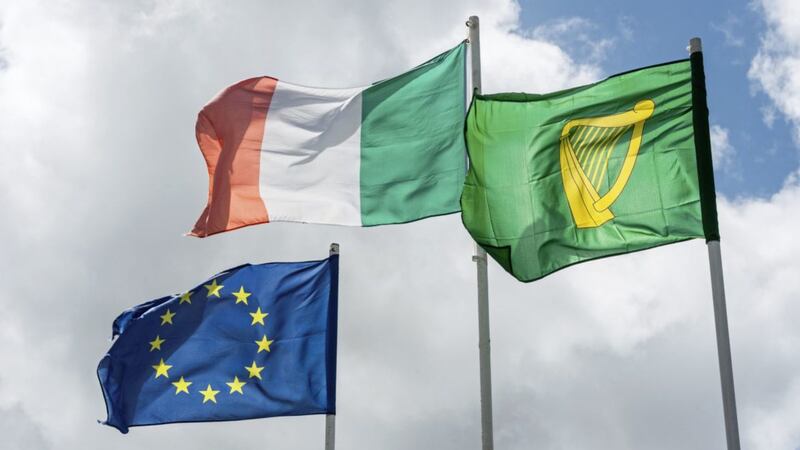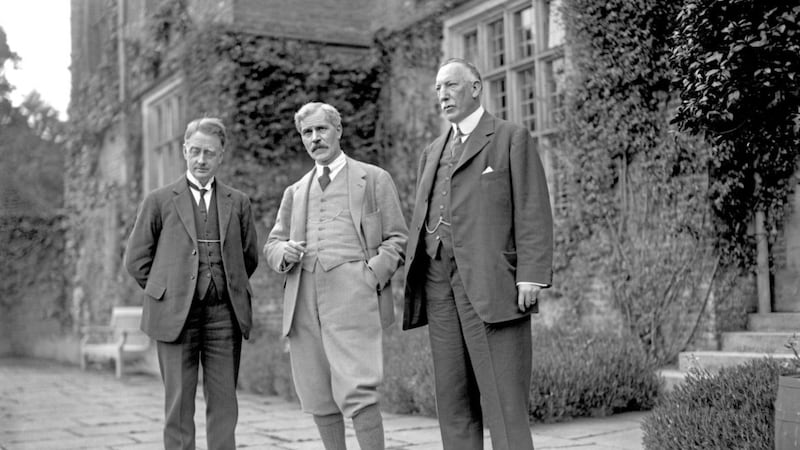ON Friday, Taoiseach Leo Varadkar's landmark speech at Queen's University framed the Brexit debate in challenging but constructive terms.
The Irish government is increasingly exerting such positive influence on the Brexit playing field.
After 14 months of unprecedented British uncertainty, and with direct talks now underway between UK ministers and EU negotiators, there appears to be growing recognition of realpolitik at senior official level in London.
At least, that must be the hope. The key unpredictable factor remains, as ever, potential instability from Westminster's fractious party politics.
However, there are some signs that Whitehall's policy thinking is shifting towards the pragmatic logic of longer-term and transitional processes.
'Deliverables' are being distinguished from 'desirables'. Five years of fuller transition, rather than two years for final walkout. New possibilities of EU engagement, rather than false glories of UK isolation. Making deals, rather than making demands. Symbolically respecting the narrow democratic vote for Brexit, while substantially redefining the actual outcome.
In this regard, the Irish government's intensive and persuasive diplomacy on Brexit has been significant.
Effective interventions and agenda-setting have carefully shaped discussions in Europe and Britain - led in London by Ireland's impressive ambassador, Dan Mulhall.
Preordained criticisms of Dublin's position neglected the evidence that key officials commenced serious strategic planning long before the Brexit referendum in June 2016.
And claims that Ireland would be bit-players to Brussels mandarins overlooked the critical strategic importance of Ireland's public diplomacy in framing Brexit's political negotiations.
That's why the content, tone and timing of Mr Varadkar's speech deserve close attention. The Irish government's positioning on Brexit is no 'back of the envelope' job.
In particular, the Taoiseach stated: "It is important that all parts of the body politic across these islands face up to the challenges presented and are clear about what they want to - and can realistically - achieve.
"But above all, we must work together to ensure that we protect the benefits of the peace process for all the people on this island.
"The House of Commons, whose approval will be needed for any new deal, is due to rise for the party conference season in just over six weeks time.
"That crucial European Council meeting will take place just 10 weeks from now.
"We need to hear the voice of those elected representatives here in the north.
"We need the Executive, the Assembly, the North South Ministerial Council and the British Irish Council up and running and acting in the interests of our peoples."
From references about 'special circumstances' by EU and UK leaders, to discussion of 'special status' between local political parties, the unique position of Northern Ireland as a jurisdiction is universally acknowledged.
In the short-to-medium term, the key challenge for Ireland's polity in the context of Brexit is to develop the practicalities of a 'two states, one system' framework across the island within maximum EU arrangements.
Such a system would respect the existing constitutional and political realities of the Good Friday Agreement, while responding to the changing realities of Brexit in economic, social, cultural and legal terms.
Even if there was a landslide pro-Irish unity referendum vote tomorrow, it would take almost a generation to engineer implementation.
'Two states, one system' therefore provides a signpost for Ireland's Brexit journey in the short-to-medium term - notwithstanding the wider, long-term debate about Irish unity, which, without doubt, will include federalist options.
A 'two states, one system' policy framework would provide stability over the coming decade while responding flexibly to changing needs across this island.
In addition, Brexit is not our only big challenge. Domestic demographics, international economics, and global security, are also posing diverse strategic challenges.
So, the Taoiseach's call for a stable political context in the north deserves thoughtful consideration. And, if an Executive cannot immediately be established under current negotiations, could all parties and both governments at least consider creating a special joint committee to engage effectively and urgently on Brexit issues?
Exactly one year ago tomorrow, Arlene Foster and the late Martin McGuinness wrote jointly to British prime minister Theresa May.
They identified issues which the Executive Office had broadly designated as concerns, namely: the north's unique status and concerns about any future border; the need for continued EU trading arrangements, including considerations for all-island/cross-border workers; the importance of the all-Ireland energy framework; the significance of EU funds to the north - particularly in relation to the agri-food sector.
The letter also stated the Executive's desire "to play our part in the engagement between the two Governments on the unique aspects of negotiations that arise from the border".
As Mr Varadkar's timely speech reminded us, those 'unique' issues haven't gone away.








